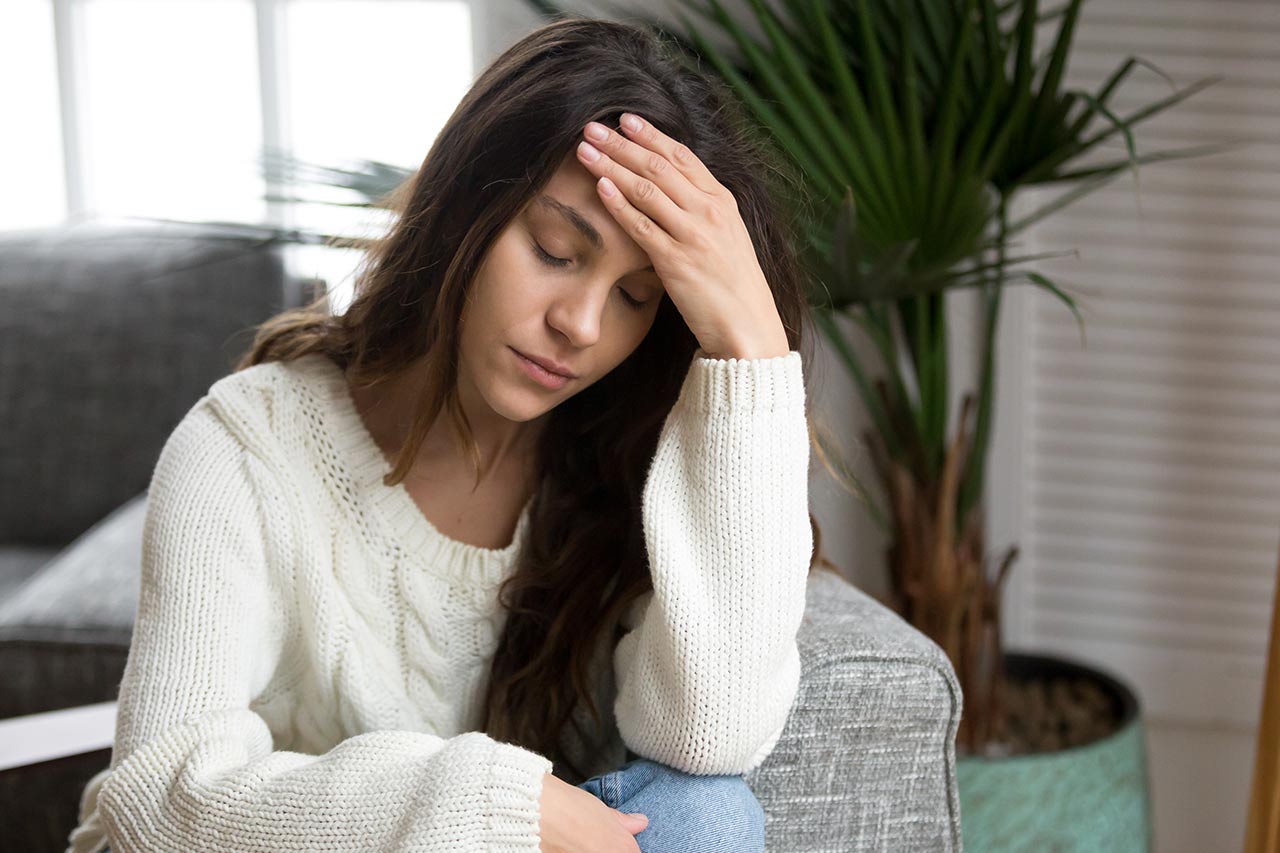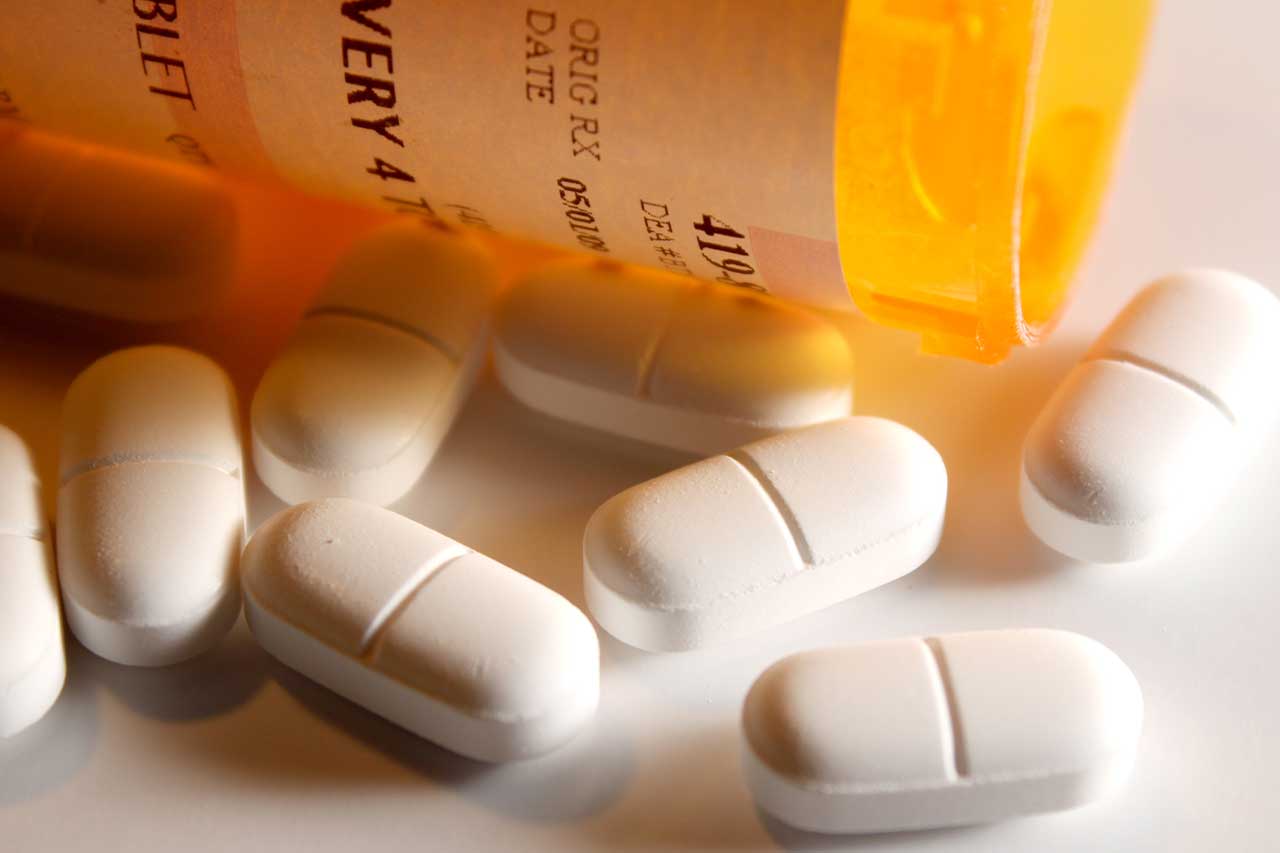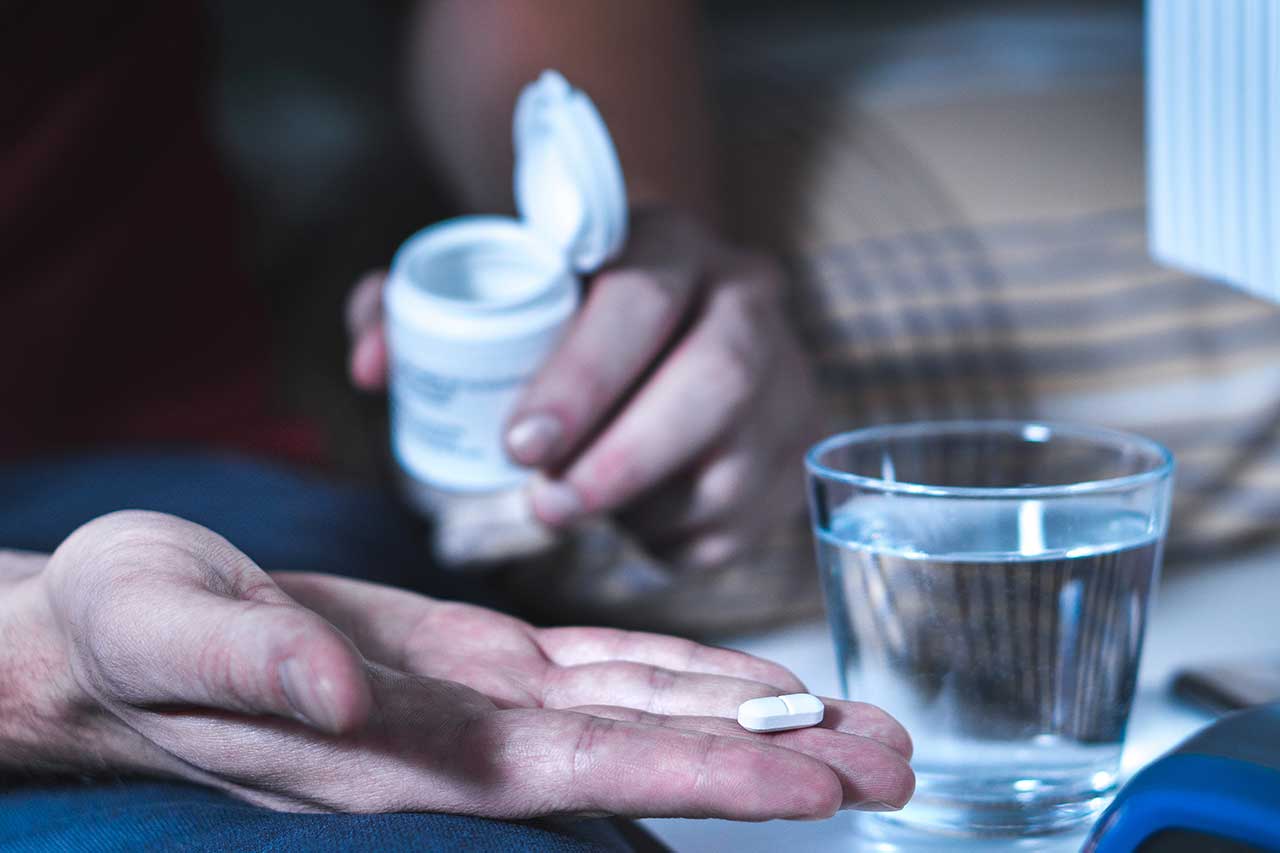


Adderall Addiction: Signs, Side Effects, & Treatment
February 16, 2022


Vicodin vs. Valium
March 18, 2022


Adderall Addiction: Signs, Side Effects, & Treatment
February 16, 2022


Vicodin vs. Valium
March 18, 2022
Sleeping Pills Overdose: Signs & Symptoms
A sleeping pills overdose is a potentially life-threatening medical emergency that occurs when an individual consumes an excessive quantity of sleep-inducing medications. These pharmaceuticals, typically prescribed to manage insomnia and related sleep disorders, can have profoundly adverse effects when taken inappropriately. The addiction experts at our Christian drug rehab dive into the clinical aspects of overdose on sleeping pills, examining its causes, symptoms, diagnostic methods, and the critical interventions required for managing symptoms. By clarifying the medical intricacies surrounding this topic, we aim to provide both healthcare professionals and the general public with a comprehensive understanding of the dangers associated with the misuse or accidental overdose of sleeping pills.
What Are Sleeping Pills?
Sleeping pills are a general term for prescription and over-the-counter medications used to treat insomnia and promote sleep. While sleeping pills may refer to prescription medications like antidepressants (Trazodone), benzodiazepines (Restoril and Halcion), Silenor, and Lunesta, sleep aids are over-the-counter medications that can be purchased without a prescription. These include natural supplements like melatonin, Unisom, Benadryl, Aleve PM, and valerian.
There are various types of sleeping pills, each of which works differently. While some sleep aids simply promote drowsiness by elevating GABA levels in the brain (like Benzos), others might shut down areas of the brain that are linked to alertness. Sleep pills are usually prescribed for short-term use to prevent dependence, and over-the-counter sleep aids, while usually non-habit forming, should not be taken longer than recommended.
What Are the Most Commonly Prescribed Sleeping Pills?
The most commonly prescribed sleeping pills fall into several categories, and each category includes different medications. The type of sleeping pill that’s prescribed to an individual may depend on their specific needs, medical history, and potential side effects.
Here are some of the most commonly prescribed sleeping pills:
- Benzodiazepines: These drugs are central nervous system depressants and include medications like diazepam (Valium), lorazepam (Ativan), and temazepam (Restoril).
- Non-benzodiazepine hypnotics (Z-drugs): These drugs, such as zolpidem (Ambien), eszopiclone (Lunesta), and zaleplon (Sonata), have similar effects to benzodiazepines but are considered less habit-forming.
- Melatonin receptor agonists: Medications like ramelteon (Rozerem) and tasimelteon (Hetlioz) work by targeting melatonin receptors to regulate sleep-wake cycles, which is why they’re commonly used to treat circadian rhythm disorders.
- Suvorexant (Belsomra): This medication works by blocking orexin receptors in the brain, which helps regulate wakefulness and sleep and treat insomnia.
- Antidepressants: Certain antidepressant medications, particularly trazodone and amitriptyline, are sometimes prescribed off-label to treat insomnia, especially when depression is involved.
- Antihistamines: Over-the-counter antihistamines, such as diphenhydramine (Benadryl) and doxylamine (found in various OTC sleep aids), are occasionally used for short-term insomnia relief. An overdose of Doxylamine can result in severe symptoms such as excessive drowsiness, dry mouth, blurred vision, and in extreme cases, seizures. It is crucial to seek immediate medical attention if any overdose symptoms are experienced.
The choice of sleeping medication should be made by a healthcare professional based on an individual's specific circumstances. Additionally, most sleeping pills are intended for short-term use, and long-term reliance on these medications should be carefully monitored and managed by a healthcare provider.
Which sleeping pill is considered most dangerous?
Among the various types of sleeping pills available, Ambien, Lunesta, and Sonata are commonly used but can be dangerous if misused. Ambien, for example, can lead to serious consequences at doses as high as 600 mg, with death reported at doses exceeding 2,000 mg. Lunesta, on the other hand, can result in overdose at approximately 90 times the intended dose, which is around 270 mg. Sonata has its own risks, with an overdose generally occurring at around 200 mg. Fatal outcomes are more likely when these sleeping pills are mixed with other depressants like benzodiazepines or alcohol. Thus, it is important to use these medications responsibly and follow the prescribed dosages to prevent potential harm and serious consequences.
What are the side effects of misusing sleeping pills?
Misusing sleeping pills can lead to a range of dangerous side effects that can manifest even before an overdose occurs. These side effects may include sleep-induced injuries such as accidents caused by impaired judgment and coordination due to the effects of the medication. Users may also exhibit uncharacteristic behaviors such as engaging in crimes or self-harm due to a lack of awareness of their actions. Additional common side effects of misusing sleeping pills include feelings of drowsiness and dizziness, along with cognitive impairment and potential gastrointestinal issues. Allergic reactions can also occur in some individuals, leading to additional complications. Furthermore, regular use of sleeping pills may result in daytime fatigue, dependency, and withdrawal symptoms when discontinued.
In cases of a potential overdose, physical signs to watch out for include excessive lethargy, unanticipated behaviors or actions, and breathing irregularities. People who misuse sleeping pills may experience extreme drowsiness, leading to clumsiness and mistakes. Additionally, breathing problems such as slow or dysfunctional breathing could signal an overdose and require immediate attention, including CPR and seeking medical help.
It's important to recognize that overdose victims may be unable or unwilling to seek help themselves due to the sedative effects of the sleeping pills. In such situations, it may fall upon bystanders to take action and contact the necessary authorities to ensure the safety and well-being of the individual.
Can You Overdose on Sleeping Pills?
Yes, you can overdose on sleeping pills, including prescription sedatives and hypnotics like Benzos and antidepressants, to over-the-counter sleep aids like Benadryl. However, when it comes to prescription drugs like benzos and antidepressants, there’s an added concern of dependence and addiction.
A sleeping pill overdose is usually the result of taking higher doses of a medication than prescribed or mixing it with other substances, like alcohol. Overdose can vary in symptoms, intensity, and duration depending on the type of drug that was taken. While an OD on sleeping pills isn’t usually fatal when these drugs are taken on their own, many people who abuse prescription sleeping pills mix them with other substances to achieve stronger effects.
Additionally, the risk of death from overdose depends on the dose of the drug taken. Everyone reacts differently to medications, so there’s no way to confirm if a dose may be non-lethal to one person and fatal to another.
Common causes of sleeping pills overdose include misuse or self-medication, accidental ingestion, combining with other substances, dependence or tolerance, and mental health issues.
There’s also the question of polydrug use. Many sleeping pill overdoses occur when antidepressants or benzos are combined with alcohol, which is common among users who take these drugs for recreational purposes. Because these particular medications have a potential for dependence, increased tolerance is another common enforcer of dangerous drug-taking behavior, such as increasing your doses without the consent of a doctor.
Can you overdose on Melatonin?
An overdose from melatonin is considered highly unlikely based on extensive scientific research. Even at very high doses taken over an extended period, there has been no evidence to suggest that melatonin can cause an overdose. However, consuming excessive amounts of melatonin can lead to certain side effects including headache, fluctuation in blood pressure, drowsiness, vomiting, and exacerbation of alopecia areata, an autoimmune condition associated with hair loss.
What Happens if You Overdose on Sleeping Pills?
The dangerous side effects of sleeping pills abuse can begin long before an overdose occurs. Sleep-induced injuries are common among people who abuse sleep medications, while other users may crash their cars while driving under the influence of their medications. Crimes, as well as self-harm and suicide attempts, have also been reported in relation to sleeping pill abuse.
Common sleeping pill overdose symptoms include:
- Excessive lethargy
- Difficulty staying awake
- Drunk-like behavior
- Impaired judgment, coordination, and movement
- Difficulty concentrating
- Abdominal pain
- Constipation
- Breathing irregularities
When combined with alcohol, a sleeping pill overdose may also cause memory problems, difficulty breathing, and low blood pressure.
How Many Sleeping Pills Does It Take to Overdose?
The lethal dosage of sleeping pills depends on the type of medication you’re taking. Although death from outright sleeping pill abuse is less likely with today’s medications than those used in the past, there are still ranges of misuse at which life-threatening consequences can occur.
If you’re taking antidepressants like Ambien, for instance, a person who’s used to taking 10 mg may be at risk of overdosing if they take 600 mg. Death has been reported at doses higher than 2,000 mg, but the lethal dose may be smaller.
An overdose on Lunesta occurs when a dose that’s approximately 90 times larger than the intended dose is taken. This would require about 270 mg of Lunesta. Sonata overdose may occur at around 200 mg. However, the risk of a sleeping pill overdose significantly increases when alcohol is involved.
Alcohol is another depressant that can combine with sleeping pill effects and strongly depress the central nervous system to the point where functions like breathing and heart rate are impaired. In severe cases, this is fatal.
Can You Die From Taking Too Many Sleeping Pills?
As we mentioned, yes, you can die from taking too many sleeping pills, although the risk of death is higher when alcohol is involved. However, the rate of sleeping pills overdose deaths is low compared with the death rates of other drug overdoses, such as opioid overdoses. With that said, it’s important you only take medication you’re given as prescribed.
Avoid mixing alcohol with any medications you’re taking, especially benzos or antidepressants, unless you get an okay from your doctor. If you have a history of alcohol abuse, be sure to mention this to your doctor, as well, so they can better monitor your progress and ensure you’re taking the medication safely.
How long does it take for different types of sleeping pills to kick in?
Different types of sleeping pills have varying onset times once ingested. Prescription sleeping pills, such as Eszopiclone (Lunesta), Zaleplon (Sonata), Zolpidem (Ambien, Edluar, Intermezzo), Suvorexant (Belsomra), and Ramelteon (Rozerem) typically start working within 20 to 45 minutes of consumption. These medications are FDA-approved for promoting sleep and have been extensively studied for their efficacy. Benzodiazepines, another category of prescription medications sometimes used for sleep, like temazepam (Restoril), can also start working relatively quickly. Over-the-counter options, such as melatonin, a synthetic hormone, generally take around 30 minutes to kick in after consumption. It's important to note that each medication may have a different duration of action, ranging from 4 to 8 hours depending on the specific drug.
How many Americans suffer from sleeplessness and use medication to help with sleep?
Approximately between 50 and 70 million Americans experience sleeplessness, with around 4% of the population relying on medication to improve their quality of sleep. Each year, millions of people turn to sleep aids to achieve longer and higher-quality sleep cycles every night.
Why is there a risk of overdose associated with sleeping pills?
The risk of overdose associated with sleeping pills is primarily due to the potential development of tolerance and dependence from frequent use. People may mistakenly believe that it is safe to use prescription or over-the-counter sleeping pills regularly, leading to unintended consequences. The likelihood of abuse also plays a role in increasing the danger of overdose, emphasizing the importance of recognizing and understanding the potential risks that come with using sleeping pills.
Sleeping Pills Overdose: What to Do
If you notice that someone is overdosing on sleeping pills, call 9-1-1 immediately. As you wait for emergency help to show up, keep the individual comfortable and avoid making them move around too much. Try to keep them awake, as well.
People who overdose on sedatives like sleeping pills will be admitted to the hospital so they can be monitored closely.
Sleeping pill overdoses are usually treated with supportive care, meaning that the doctor monitors the patient’s breathing and cardiovascular system while the body works the benzodiazepine out of the system. In some cases, activated charcoal, hemodialysis or whole bowel irrigation may play a role in helping to treat an overdose. Rarely, a physician may choose to administer flumazenil. It reverses sedation caused by benzodiazepines to bring a victim back to their normal state. However, due to the risk of seizure and heart rhythm disorders, the risks of flumazenil generally outweigh the benefits.
Intensive care is usually required, during which the person may have their stomach pumped, receive activated charcoal to absorb the drug, be put on a respirator to improve their breathing, and more. It is crucial for medical professionals to closely monitor the patient's vital signs and overall condition throughout the treatment process. Additionally, the decision to administer flumazenil, while potentially beneficial in reversing sedation, must be carefully weighed against the risks of inducing seizures and heart rhythm disorders. Each treatment approach is tailored to the individual's specific situation to ensure the most effective and safe outcome.
Help for Sedative Abuse
Many people abuse sedatives for their euphoric and relaxing side effects. Unfortunately, drugs like benzos (while available through prescription) have a high potential for addiction and can be unsafe when misused. If you or a loved one is struggling with sleeping pill misuse dependence, Banyan’s Christian rehab centers can help.
We offer medically monitored detox and addiction treatment for illicit and prescription drugs and alcohol. With the use of medicated-assisted and psychotherapy services, we help patients recover physically and psychologically from addiction.
Our faith-based recovery programs also incorporate a spiritual element and include supplementary options like bible studies and Christian counseling sessions. Regardless of the focus of these studies, people of all faith backgrounds are welcome to join us.

